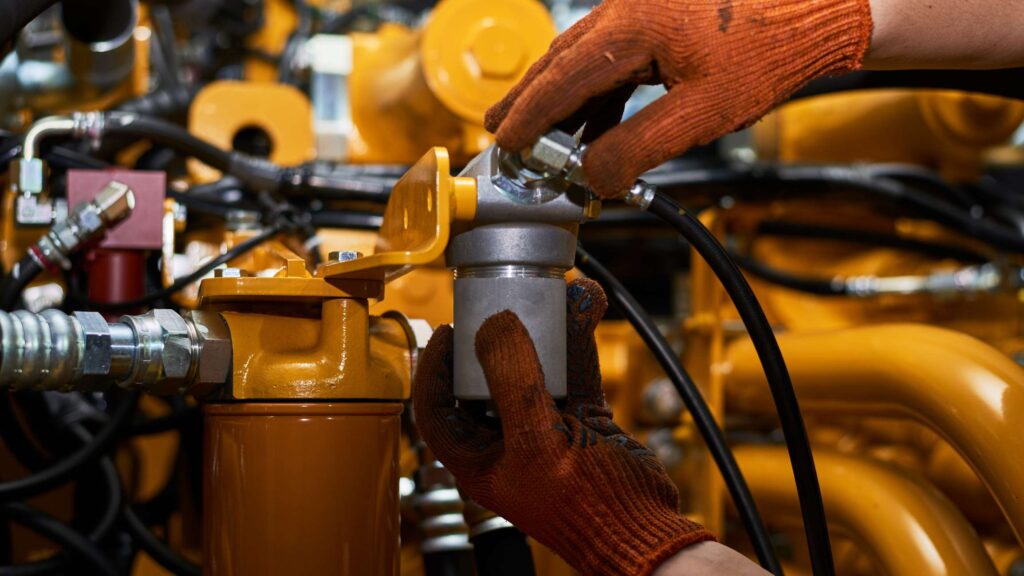Hydraulic hoses are essential to powering a variety of heavy equipment. However, they are also susceptible to damage, wear, and age.
Having your hydraulic hoses replaced regularly is crucial for the safety of employees and equipment. Here are a few of the benefits you can get from professional hydraulic hose replacement services:
Reliability
Hydraulic hoses are vital components in hydraulic systems, and they’re designed to perform under harsh conditions. Over time, however, they can experience issues that must be addressed immediately to prevent significant damage and costly repairs.
In addition, they must be inspected regularly to detect signs of failure. It can help prevent further deterioration and damage, cutting down on the amount of downtime you experience.
Professional hydraulic hose repair services can ensure that your hoses are operating at their best, helping to improve productivity and safety in your business.
The rubber on hoses degrades over time, much like tires do, and this can cause them to fail prematurely. If your hydraulic hoses are over ten years old, replace them immediately.
Ideally, replacement work should be conducted by a certified person who understands the tolerances involved in the assembly and fabrication of hydraulic hose assemblies. It also makes it more likely that the new hose will last.
Flexibility
Hydraulic hoses are designed to transfer pressurized fluid between various parts of hydraulic systems. They are made from multiple materials, including elastomers, fluoropolymers and silicone, thermoplastics, metal, and composite or laminated structures.
Flexibility is the ability of a hose to bend, twist and expand without rupturing. A groove can enhance it, which creates tiny threads or folds in the material to increase expansion.
Hoses must also be flexible to follow machine contours and withstand rubbing against other equipment. It helps operators avoid pinch points that can snag or puncture a hose.
The flexibility of a hydraulic hose is also affected by temperature, internal pressure, and fluid viscosity. These factors can cause a hose to lose its ability to bend and expand, reducing its life.
A hose may need to be changed after it has reached the end of its useful life. Fortunately, you can get a new one quickly and easily with expert hydraulic hose replacement Charlotte NC, services.
Safety
Hydraulic hoses are essential to a wide range of industrial and commercial applications. They convert a small amount of pressure into a large output, powering some of the world’s giant machines.
Although hoses can last a long time, their lifespan is limited by the wear and tear they experience as they go through the daily operation. Pay close attention to manufacturer life span recommendations and inspection schedules to avoid unexpected failure and keep your equipment running smoothly and safely.
If you notice signs of deterioration, such as cracking, corrosion, or even general wear and tear on the hose, it’s time for hydraulic hose repair services. A professional technician will be able to find the source of the problem and repair it as quickly as possible.
Aside from repairing the damage, a hydraulic hose technician will ensure that the new hose is appropriately routed to limit problems and increase efficiency. It ensures that the system will function optimally and that there won’t be any leaks or kinks in the hose, which can be dangerous to your equipment and your employees.
Time
When a hydraulic hose fails, it can cause equipment downtime and cost your company money. A leaky hose can lead to employee injuries, property damage, expensive cleanup, and other problems.
Professional hydraulic hose replacement services help you avoid these hazards. With a simple inspection and preventative maintenance schedule, you can detect minor issues before they become more significant and costly to fix or replace.
Besides the obvious safety benefits of a new hose, a reliable assembly can reduce downtime and increase productivity in your business. Replacing a failed hose with a new one is often less expensive than paying for cleaning up, rest, and the added costs associated with repair work and labor.
Hydraulic hoses should last at least two years at the recommended operating temperature. However, heat can degrade a hose’s service life by cracking the outer cover and drying out tube walls. Other external factors that shorten a hose’s life include physical damage such as abrasions and cuts, kinking, or bending.
